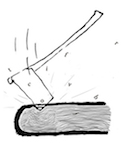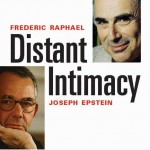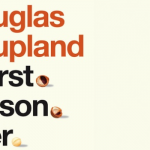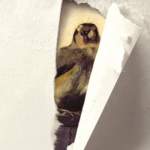Hatchet Job 2014 | Previous years | Manifesto | Press

Hedley Twidle on The Last Train to Zona Verde by Paul Theroux
NEW STATESMAN
A decade after his last African travelogue, Dark Star Safari, which took him from Cairo to Cape Town, Paul Theroux picks up where he left off. He starts at the southern tip, intending to journey up “the left-hand side of Africa” until he finds “the end of the line, either on the road or in my mind”. He begins with a flash-forward to an experience with the !Kung people of north-east Namibia:
“I then resumed kicking behind a file of small-bodied, mostly naked men and women who were quick-stepping under a sky fretted with golden fire through the dry scrub of what was once coarsely known in Afrikaans as Boesmanland (Bushmanland) – pouch-breasted women laughing among themselves, an infant with a head like a fuzzy fruit bobbing in one woman’s sling, men in leather clouts clutching spears and bows, nine of us altogether – and I was thinking, as I’d thought for years travelling the earth among humankind: the best of them are bare-assed.”
This tour de force of pseudo-ethnography would have been the end of the line for this reader, had he not been a reviewer on deadline. If you stop here, though, you will not realise that Theroux retracts this scene a few pages later – we learn that it was a re-enactment staged for foreign tourists. He encounters this group again shortly after, when they have changed from animal skins back into second-hand clothes handed out by western charities: T-shirts lettered “TommyHilfiger” and “Springfield Hockey”. What visitors see is “a travesty in the precise meaning of the word . . . a dressing up in unnatural clothes”. The Ju/’hoansi misrepresent themselves “to cater to the imaginations of fantasists, of which I was one”, and the result is like taking a re-enactment at Plimoth Plantation for the reality of Massachusetts today.
The strange and troubling thing about this passage and about the book as a whole is that, even though they are contradicted at every turn, Theroux is unwilling to let go of his African fantasies. In any case, prose like that can’t easily be forgotten and he reprises the whole scene halfway through, having another anthropological go of things before heading to Angola. Here, “the twitching decrepitude of urban Africa” resumes and the book disintegrates in a welter of Afro-pessimism so intense that it out-Naipauls both Naipauls and makes even Conrad’s Marlow seem fairly chipper. “I became conscious of entering a zone of irrationality,” he writes: “the awful, poisoned, populous Africa; the Africa of cheated, despised, unaccommodated people; of seemingly unfixable blight.”
As in Dark Star Safari, Theroux has come to Africa because he wants to get away from emails, mobile phones, braying dinner-party guests, trivialities, and so on. Things start out fine: he acclimatises in luxury hotels in Cape Town, visits some townships, then gets a bus all the way to Namibia. Along the way, he registers various Southern African accents in italics – rather annoying but fair enough. “Good journey, sir” becomes “Jinny”; we hear of “dimisteek servants”, “thitty kilometres”, the “jaw-twisting Afrikaner yeauh for ‘here’ ”. All this, you sense, is just preparation. He wants to re-enter the zona verde, the green, brooding landscapes and immemorial rurality of “l’Afrique profonde”, where a narrator-hero descended from Herodotus, Haggard, Thesiger, Hemingway, Blixen, van der Post et al can commune with his subconscious and have big thoughts in an Africa uncomplicated by 21st-century African people.
Read the full review on the New Statesman website
Read all reviews for The Last Train to Zona Verde
The Omnivore on Twitter | The Omnivore on Facebook | Sign up for The Omnivore Digest









